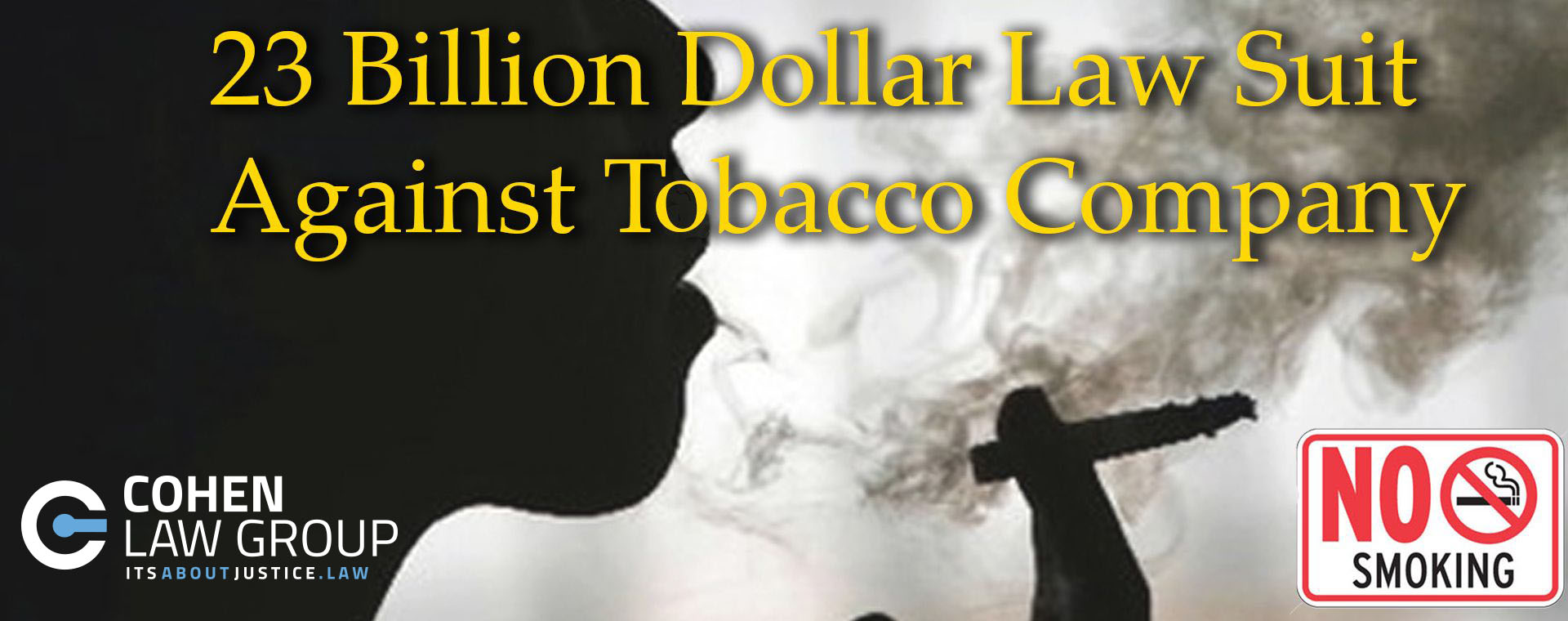23 Billion Dollar Lawsuit Against Tobacco Company
R.J. Reynolds Tobacco hit with $23.6 Billion verdict for chain smoker’s widow
Pensacola, FL jury awarded $23.6 billion in punitive damages and $16.7 million in compensatory damages to Cynthia Robinson, the widow of a smoker who died of lung cancer in 1996. Robinson filed suit on behalf of her husband, Michael Johnson, Sr., a hotel shuttle bus driver who died at age 36.
Johnson started smoking when he was 13.
In the next twenty years, he became a chain smoker, and despite attempts to quit and getting lung cancer, he died while smoking
In Robinson’s suit against R.J. Reynolds, she claimed the tobacco company failed to properly disclose to the public the harmful effects and addictive qualities of their products. Although the lawsuit was initially filed a decade after Johnson’s death, the trial lasted four weeks.
At the conclusion, the jury deliberated 11 hours before returning an award of $7.3 million to Robinson, who got married to Johnson six years before his death, and $9.6 million to their son, Michael Johnson, Jr. in compensatory damages. After another seven-hour deliberation, the jury returned their verdict for $23.6 billion in punitive damages to be awarded in Robinson’s case.
For Robinson, it seems likely the jury verdict will stand.
However, R. J. Reynolds announced it plans to appeal the $23.6 billion punitive damages award. Historically, tobacco companies that have previously been hit with multi-billion dollar verdicts have had the amount reduced to millions.
In 2003, the U.S. Supreme Court ruled that punitive damages should not generally be more than nine times greater than the compensatory amount.
This jury award is the highest in any individual case brought in Florida since a 2006 verdict in the amount of $145 billion was returned – and later overturned by an appeals court– in a smokers’ class action brought by a Miami Beach pediatrician, Dr. Howard Engel.
The jury there, and in similar cases afterward found that tobacco companies were negligent in failing to warn the public of the addictive properties in cigarettes, conspired to hide evidence of the dangerous risks associated with smoking, targeting tobacco marketing to teens despite warning labels, and selling defective tobacco products.
The Engel verdict was voided after the court found that smokers as individuals could not make up a class. However, another result of the Engel case was that the court also ruled that smokers and their families bringing suit individually only had to prove addiction to smoking and a connection between smoking and their deaths.
Robinson’s case is of the “Engel progeny” cases, and with verdicts like hers, there are sure to be more lawsuits brought not only in Florida, but nationwide. Juries are sending a message to tobacco companies, as Robinson’s attorney said, that there are consequences for manufacturing cigarettes and selling them without properly informing consumers of the hazards.
DISCLAIMER: This website is for informational purposes only and does not provide legal advice. Please do not act or refrain from acting based on anything you read on this site. Using this site or communicating with Cohen Law Group through this site does not form an attorney/client relationship. This site is legal advertising. Please review the full disclaimer for more information by clicking here.

